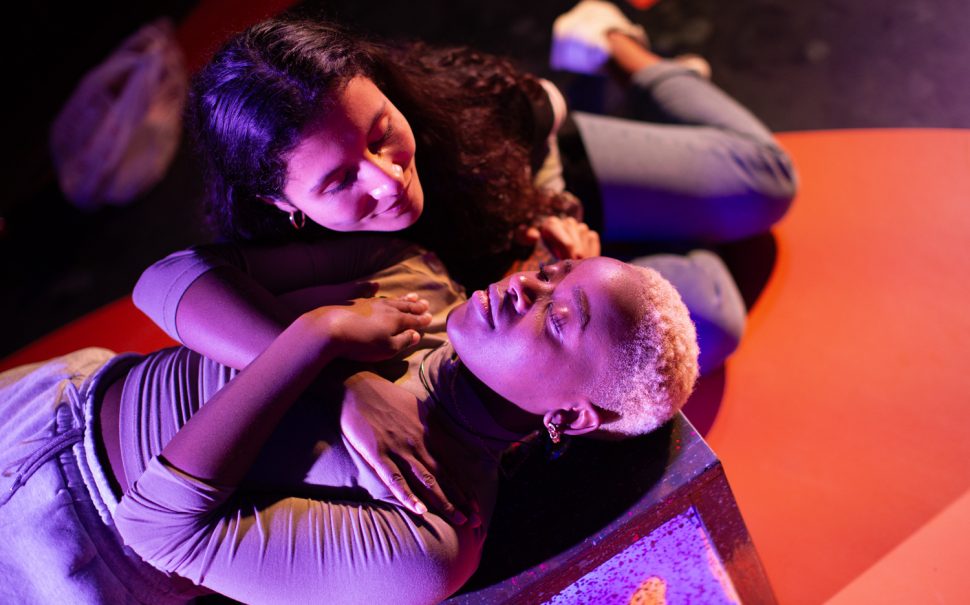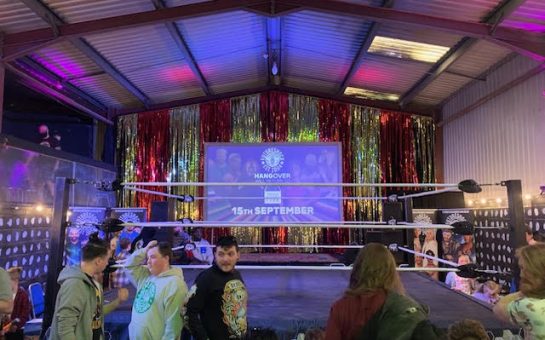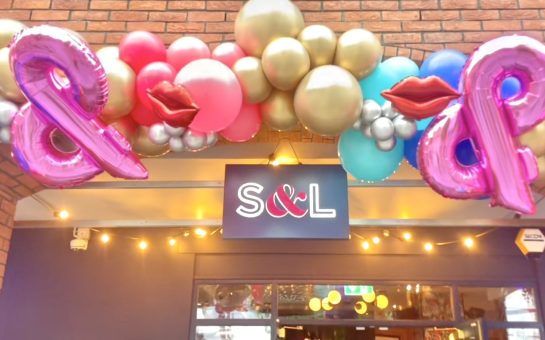Half Moon’s production of Hot Orange is a powerful homage to childhood friendship and love in an immersive insight into faith, sexuality and societal pressures in a coming-of-age story.
Writers Amal Khalidi and Tatenda Naomi Matsvai present a story of two girls who meet on a basketball court and become fast friends who are almost destined to fall apart.
Amina has a North African background and is Muslim, whilst Tandeki is of African descent and Christian.
The pair explore innocent love, promising to always have each other, but both characters face outside pressures, dealing with homophobia and familial issues that drive them apart.
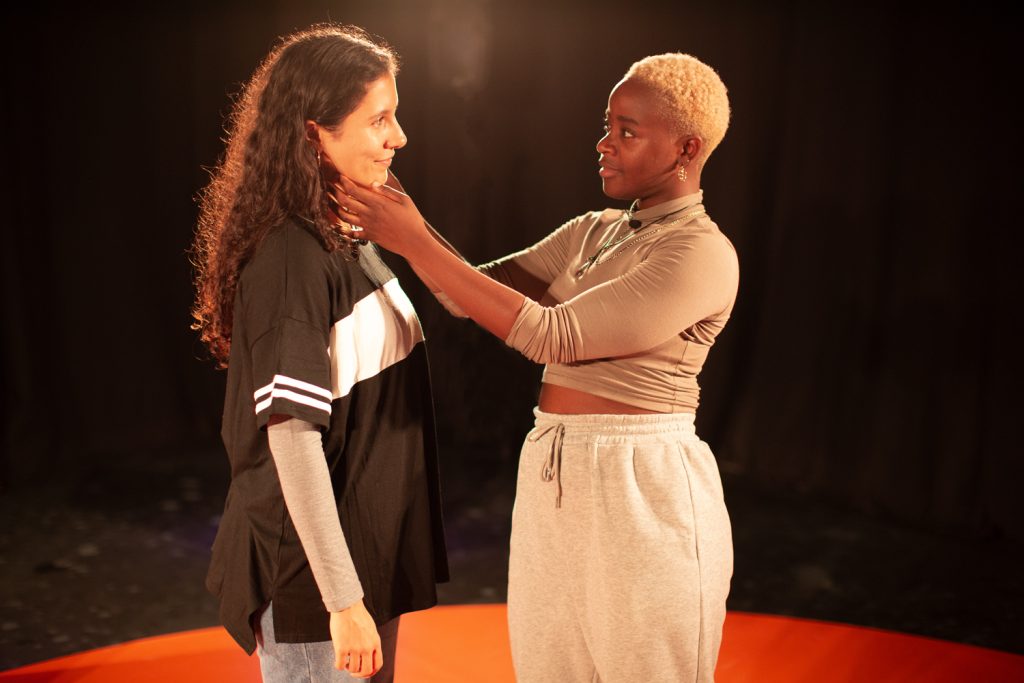
The two are connected by their love of the game and the play explores the connection the sapphic community has with sports expertly.
The audience was invited into the immersive performance, being handed hoola hoops to snack on and playing catch with Amina at points.
This allowed the audience to engage with the show and relish in their own inner child.
Tandeki, played by Tatenda Naomi Matsvai (they/them), is a boisterous character who idolises her older brother, and navigates the peaks and valleys of her childhood with confidence and assurance in herself.
The character faces the reality that not all families are supportive of queer children and is pushed away from people she loves because of such challenges.
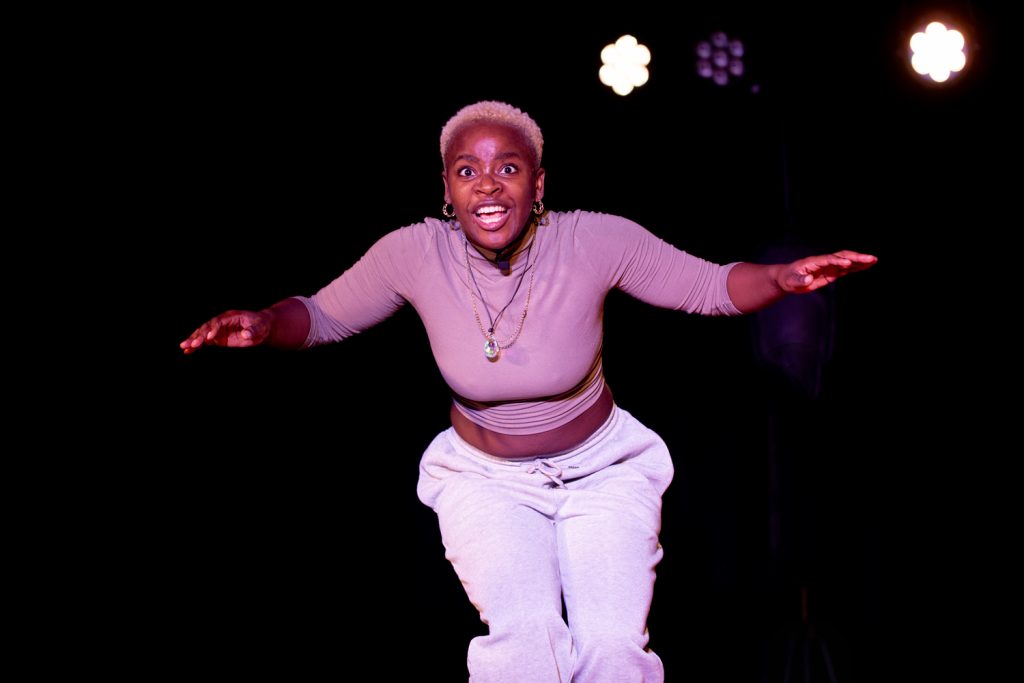
Matsvai captured the nuances of growing up queer in their performance, the way in which they explored the shame surrounding a queer childhood was utterly breath-taking.
The actors spoke to the audience in a Q&A after the performance about what the characters meant to them.
Matsvai said: “Growing up a young person there was a lack of queer people who looked like me, who were from where I’m from and who spoke the way I spoke.”
The pair addressed the trope in a lot of sapphic media that love has to be tragic and often end in heartbreak.
Matsvai spoke about how when writing the show they wanted to be aware of that and show the young audience that queer love does not always end negatively even with trials and tribulations.
They said: “There were not enough narratives to connect to that were well adjusted, and not absolutely toxic and damaging in starting to build the building blocks of how to navigate what queer relationships look like as young people.
“For me that’s what Tandeki gets to be as someone who is navigating that thing and coming into herself and dealing with stuff going on at home with confidence and adopting a sense of care for herself.”
Amina, who is played by Yamin Twomey (she/her), is quieter than Tandeki but perhaps the driving force of the pair, inciting the two into silly games.
The character struggles with pressures from her family and faith and is pressured to dress and act in a way that does not represent who she is.
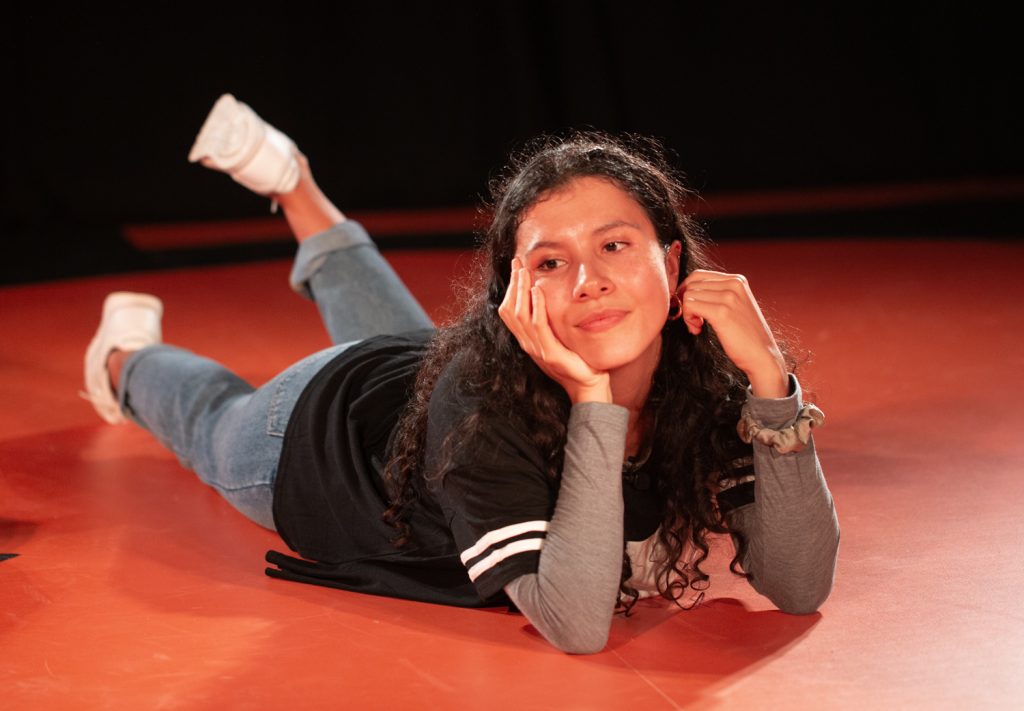
Twomey truly encapsulated the shaping and growing of a child’s identity when faced with adversity in a sensational performance.
The actor talked after the performance about the importance of seeing diversity in characters like this.
Twomey said: “ When I saw the casting call going up I was so excited, I’m half-North African, and a call for someone of my heritage is unheard of.
“I mean it’s getting better in terms of diversity in casting but it’s still not 100% there in the industry. So seeing diverse casting in the performance was really amazing to me.
It was evident that the audience engaged with the messages as well, many came over to recount their own stories of growing up LGBTQIA+ and struggling with societal pressures with the cast after the show.
The show will have its final performance in London at the Half Moon theatre on the 2nd Dec. Tickets can be found here.
Images courtesy of Stephen Russell.
